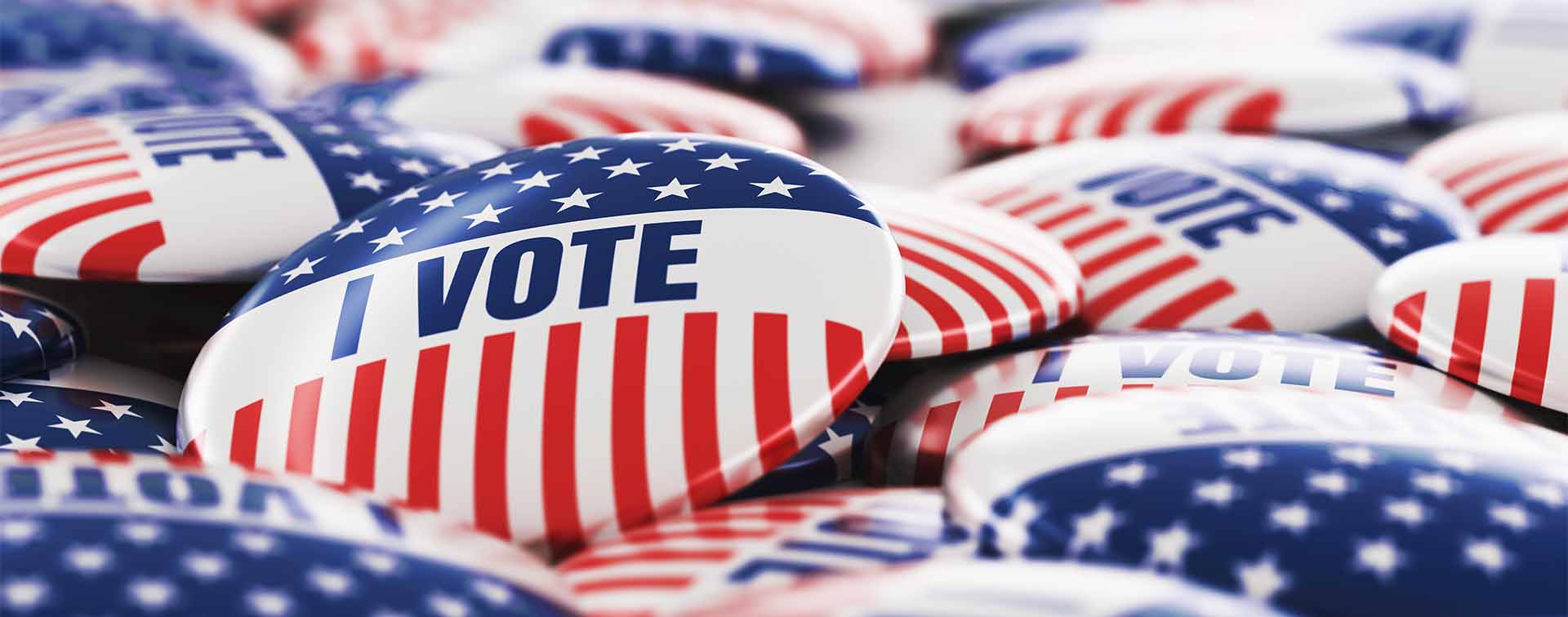
Misha Glenny is the Rector of the Institute for Human Sciences in Vienna. An award-winning journalist and broadcaster, he is the author of McMafia and DarkMarket: How Hackers became the New Mafia and is a former UK Digital Security Journalist of the Year.
Just under 2% of the world’s population have the right to go to the polls in November to decide who will be the next US president. The average turnout in presidential elections since 2004 has been around 60%. That means around 96 million people will be making a choice that will have far-reaching consequences for the remaining 8 billion around the globe.
A minority of the unenfranchised are looking on with unbridled excitement. Some leaders see division and social conflict in America not as a crisis but an opportunity. For most, however, the sentiment is thinly disguised anxiety at the prospect of a second term in office for Donald Trump.

The world finds itself in the middle of what the historian, Adam Tooze, has described as a ‘polycrisis’. Unexpected conflicts have flared up across the globe, disrupting trade flows, encouraging ‘sticky’ inflation, and undermining political stability.
This pervasive sense of chaos has proved a challenge to the presidential incumbent, Joe Biden. Dogged by accusations of age-related cognitive decline, his critics argue he no longer has the intellectual wherewithal to manage either domestic or foreign policy. It’s not just Republicans. Behind the scenes, some leading Democrats have been urging President Biden unsuccessfully to retire in favor of a younger candidate.
By contrast, Donald Trump’s bid to return to the White House resembles a rockstar’s roadshow more than a campaign. He has swept away all challenges from his Republican rivals without bothering to turn up to the televised debates that are usually so decisive in the primaries. But although effectively uncontested, his frequent verbal memory lapses reinforce the sense of this election being a battle of ailing gerontocrats.
In fact, Joe Biden has won plaudits for his economic performance, particularly his major structural reforms such as the Inflation Reduction Act and the CHIPS and Science Act. These attempts at ‘re-shoring’ industry into the American heartlands have supercharged the country’s hi-tech and green industries, including the electric vehicle sector. Unemployment remains low and Biden’s job creation record impressive. Yet the perception of ordinary voters is one of stagnating living standards, rising debt levels, and a dangerously polarized society.
The president looks at his weakest when managing foreign policy. In normal times, foreign policy only plays a minor role in a presidential election. In the age of the polycrisis, however, Biden is struggling to manage two extremely neuralgic overseas conflicts. The Russo–Ukrainian war and the conflict between Israel and the Palestinians have insinuated themselves into the domestic debate in a manner that is proving toxic for his campaign.
Under its Trumpian speaker, Michael Johnson, the House of Representatives has blocked a vital aid package to Ukraine worth USD 60 billion. The strategy is designed to embarrass Biden. Republicans argue that the money sent to Ukraine would be better spent at home. In fact, the overwhelming bulk of the cash approved for Kyiv so far stays in the USA, providing a small bonanza for the US arms industry.
Nonetheless, the consequences are stark. Starved of both munitions and new weapons systems, Ukraine is facing a renewed Russian onslaught. If Kyiv continues to suffer setbacks on the battlefield, Biden’s opponents will paint him as somebody who promises to support embattled democracies but isn’t able to deliver.
Meanwhile, much of the Global South and even some European countries have criticized Washington’s refusal to exert any credible pressure on Israel to agree to a ceasefire in its war on Gaza.
Biden faces a dilemma. Trump and the Republican party are strongly pro-Israel as was most of the Democratic Party until recently. But the younger Democrat cohort along with Democrats from some minority groups have broken with the traditional bi-partisan support for Israel. And this could damage Biden’s electoral prospects in the crucial swing states. Michigan with its large Arab American population is a case in point. Pro-Palestinian campaigners have been urging voters to abstain in the election. Trump narrowly won by 11,000 votes in 2016 but lost it to Biden in 2020 — phenomena like this will be crucial.
The USA’s primary strategic rivals, Russia and China, are monitoring this apparent weakness carefully. But don’t be fooled — under the surface, there are strains between Moscow and Beijing, and a Trump presidency would exacerbate them. Trump would likely increase the hostile approach to China which he launched during his first presidency. Over the past year, the relationship between Washington and Beijing under Biden has quietly improved — both leaderships are worried about the economic disruption which the polycrisis has triggered. Putin, by contrast, thinks he can manipulate Trump to do his bidding — at the very least, Trump is unsettling America’s European allies.
Weighing into the debate on Ukraine and European security in his trademark off-the-cuff style, Trump has once again called NATO and America’s role in financing the Western military alliance into question. Casually dismissing European concerns, he said that Russia could do what it wants with NATO countries that don’t pay enough into the alliance kitty. Trump has secured the public support of one European Union leader — Hungary’s Prime Minister, Viktor Orban, who is at daggers drawn with Brussels and most senior leaders in the bloc.
These days, it is not just about the USA, Europe, Russia, and China. In a welcome shift, people are listening to the voices of other major powers from Brazil in South America to India and Indonesia in Asia but also rising economic powers such as Türkiye, Kenya, and even Bangladesh. All this means that the challenges facing the winner of November’s election will be more complex and greater than ever. The USA remains the decisive economic power in the world but politically it has rarely appeared so unsure of itself. Whatever the outcome, it is certainly going to be interesting.
Henley & Partners assists international clients in obtaining residence and citizenship under the respective programs. Contact us to arrange an initial private consultation.

Have one of our qualified advisors contact you today.
We use cookies to give you the best possible experience. Click 'Accept all' to proceed as specified, or click 'Allow selection' to choose the types of cookies you will accept. For more information, please visit our Cookie Policy.